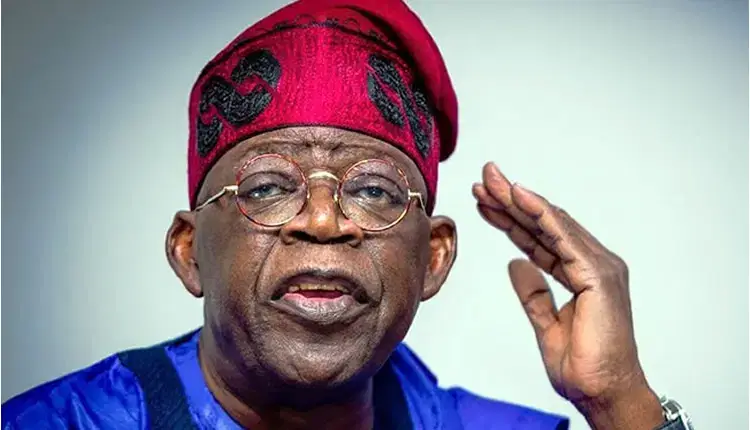
Nigeria’s President Bola Ahmed Tinubu has stated that Africa must take the initiative to address its own challenges.
Tinubu noted that the global perception of Africa is often one of despair and turmoil, but he countered this narrative by advocating for peace, stability, and democracy as essential pathways for collective and progressive advancement.
FocalPoint News reports that the Nigerian leader expressed this during a dinner held in his honour at the People’s Palace in Malabo, Equatorial Guinea, on Wednesday evening.
Tinubu emphasized the necessity of fostering research and development through the provision of suitable incentives.
He urged African leaders to adopt more strategic and intentional measures to combat the outflow of skills and talents from the continent.
He remarked that their meeting represents a pivotal moment in Africa’s history, particularly for West and Central Africa, highlighting the relationship between the Federal Republic of Nigeria and the Republic of Equatorial Guinea.
Tinubu expressed his appreciation for the profound insights shared by his counterpart, the President of Equatorial Guinea, Teodoro Obiang Nguema Mbasogo, regarding the continent.
Furthermore, he reiterated the importance of promoting peace and stability across the continent, acknowledging that some nations continue to face internal strife. Tinubu pledged to collaborate closely to foster peace and resolve conflicts.
The Nigerian president said: “Why are we complaining about healthcare problems if our doctors cannot have a home in our continent? If our nurses are faced with destitution, and if our judicial system is archaic?”
FocalPoint News reports that President Tinubu is on a three-day official visit to Equatorial Guinea.
Speaking further on the need for development in Africa, Tinubu said: “Tribalism has no place in our nation or region. We have to strengthen the continent. Cultivate and maintain peace together and help one another.
“We have to develop our resources for our progress. Find solutions among ourselves and focus incisively on research and development, and reward those research and development programmes. We must bring out the results ourselves. We must not outsource them or sell them out.
“To the international organizations, we are partners. We will continue to be partners, but we must implement more than half of the results of the research established here. We have many youths to take care of. Millions yearning for progress.’’
He added: “It is a joy coming down here from Abuja, and for me, it is a homecoming. We are one single family on the continent. We are like twins held together at the hips. We have nowhere to go, but to cling to each other.
“Our gathering here is a significant milestone in the history of Africa, particularly for West and Central Africa; between the Federal Republic of Nigeria and the Republic of Equatorial Guinea. I am happy to hear very deep thoughts coming from my brother, the President of Equatorial Guinea, concerning Africa.
“Africa must solve its own problems. For the world, Africa is wretched and ragged, full of conflicts. We say no. Peace, stability, and democracy are the way forward for our collective and progressive development. We have agreed on that with President Mbasogo.
“We definitely will continue to promote peace and stability throughout the continent. Some of our other brothers in shackles are still there, at each other’s throats. We will both work together and do whatever is possible to promote peace.
“What we are seeing in certain parts of the continent and areas of the Sahel is not pleasant for our today and not promising for our tomorrow. We have to work together to make peace the focus of our development.
“Without peace, we cannot have development. Our problem is not that we do not understand what to do. We identify them, and we understand what to do. Our problem is how and when we should do them. I say the time is now. We had better roll up our sleeves, put on our knickers, and move strongly for the peace and stability of our continent.”
Remarking, President Nguema Mbasogo thanked President Tinubu for honouring his invitation.
He said: “It is with utmost affection and respect that I would like to greet President Tinubu and wish him and his delegation a warm welcome to Equatorial Guinea.
“We wish to express our gratitude for your acceptance of our invitation. We feel honoured to host this meeting that brings us together in Malabo.”
The President of Equatorial Guinea emphasized the need for enhanced collaboration and solidarity between the two nations, asserting that “Nigeria has consistently occupied a significant position in our foreign policy.”
President Mbasogo remarked that the existing momentum and dynamism in bilateral relations should be further reinforced, while also underscoring prior agreements in the fields of education, mining, defence, security, and agriculture.
“We recognize Nigeria’s potential and experience as the largest economy in Africa since 2015, and we consider it as one of the great global emerging markets.
“Mr. President, this visit is an opportunity to further strengthen our historical relationship to be much greater,’’ President Mbasogo added.
President Mbasogo emphasized the necessity for a more profound collaboration between the two nations to combat piracy and insecurity. He highlighted the importance of working alongside other members of the African Union and the United Nations to address issues such as climate change, food scarcity, and terrorism.
Prior to the dinner, President Tinubu and President Mbasogo formalized their commitment by signing an agreement concerning the Gulf of Guinea Gas Pipeline Project.

Comments
Post a Comment